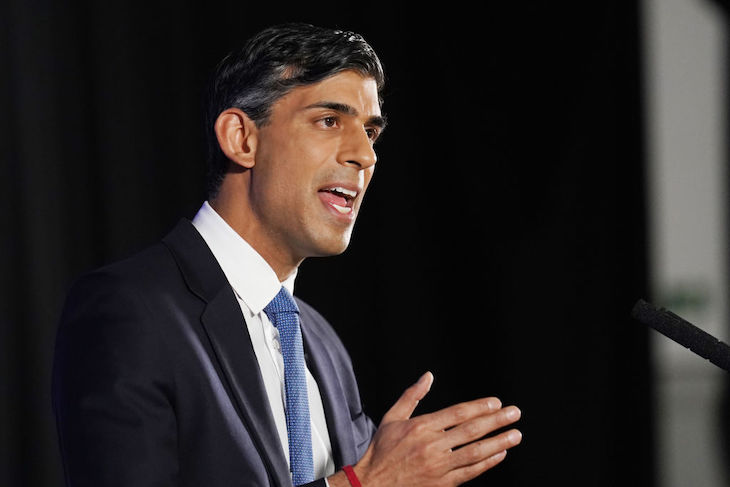Rishi Sunak’s new year speech was more about what he wants to fix rather than how he plans to fix it. That is generally what start-of-the-year speeches intend to do, painting in broad strokes rather than going into endless policy detail. The Prime Minister came to office with a promise to fix the turmoil left by Liz Truss, but now his challenge is to give a sense he’s here to do more than just keep the markets calm.
He set out five ‘immediate’ priorities, some of which may happen regardless of any new policies the Prime Minister introduces. Sunak claimed that they are ‘the people’s priorities’, and listed them as follows:
1. Halve inflation this year.
2. Grow the economy.
3. National debt falling.
4. NHS waiting lists will fall and people get the care they need more quickly.
5. New laws to stop small boats.
The Bank of England has already forecast that inflation will halve this year anyway, while passing laws to stop small boats is something the government can do, even if those laws don’t stop the boats. The NHS waiting lists pledge is still ambitious given they are currently expected to rise as a result of new patients coming into the system who may not have been seen as early as possible.
So Sunak wasn’t saying that the British public can hold him accountable just for things he knows he can achieve. He told the audience of MPs and journalists in London this afternoon: ‘Those are the people’s priorities. They are your government’s priorities. And we will either have achieved them or not. No tricks, no ambiguity, we’re either delivering for you or we’re not. We will rebuild trust in politics through action, or not at all. So, I ask you to judge us on the effort we put in and the results we achieve.’
The Prime Minister did say these weren’t his only priorities or the limits of his vision, which is just as well given the gaping holes in public services that he will need to plug in order to achieve point four, for instance. He insisted both in the speech and in the question-and-answer session afterwards that the government was already investing billions of extra pounds in social care, but this is very much not the extent of what needs to change to make that sector work properly and to allow the NHS to work more smoothly. His section on the family and its importance to him and his political philosophy was interesting for those trying to understand Sunak as a politician but frustrating for other families struggling to afford the cost of childcare. The Liz Truss reforms to staffing ratios that Sunak looks set to junk are pretty unpopular with parents, anyway, but that doesn’t mean working households are content with the status quo, either.
A bigger challenge to restoring trust for Sunak is whether the Tories have squandered too much of it to recover at the next election, even if he does hit his objectives. That’s why so many of the questions after the speech were about why voters should stick with the Conservatives now. It will be one of the themes of the Labour attack this year, too: given what has come before, why on earth should people trust you enough to give you more time?







Comments